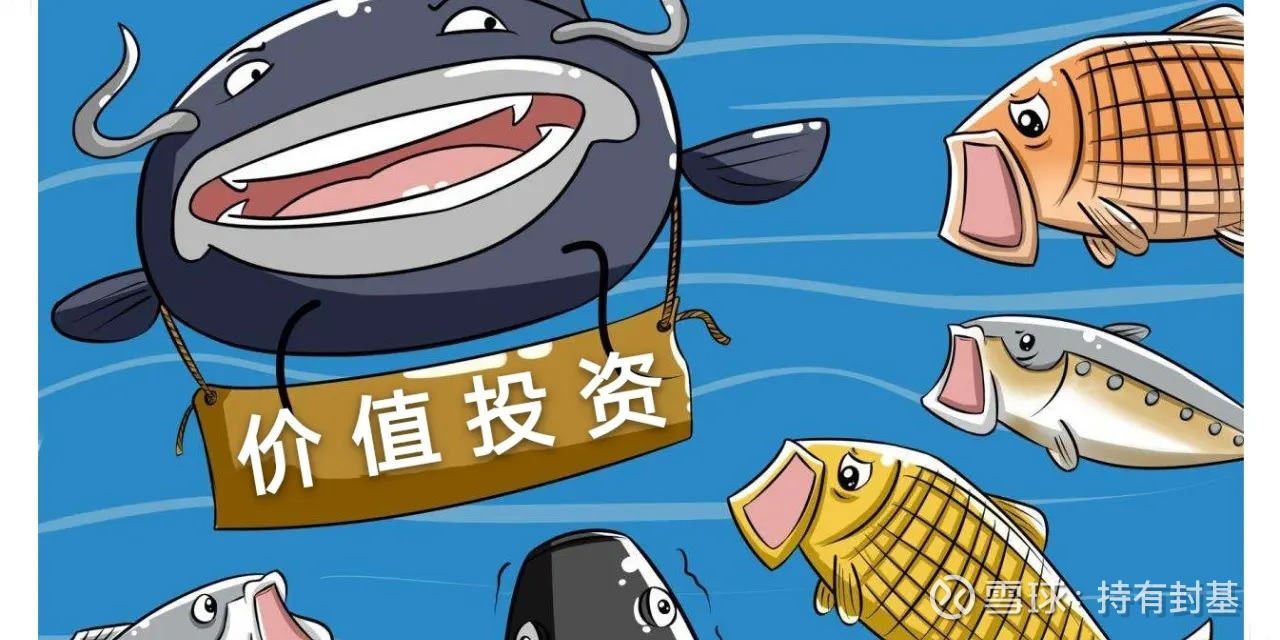
In the past two years, many value investors have been severely challenged. Most of their accounts have shrunk or even shrunk significantly. In the past, they were regarded as the targets of value investment, such as Maotai, China Merchants Bank, and Ping An, which have also adjusted back for various reasons. . If counting from the highest point, Maotai fell 33.19%, China Merchants Bank fell 45.55%, and Ping An fell 53.09%. In the past, there were two types of A-share banks, one is China Merchants Bank and the other is other banks, but China Merchants fell 33.42% this year, ranking second among the 42 listed banks.
Some people say that it is because value investing is not suitable for the Chinese market. I talk about my own ideas, not necessarily correct.
In classic value investing, money should be earned with intrinsic value, and intrinsic value is generally calculated by discounting future cash flows. The most difficult thing here is the prediction of future cash flow. Although the discount rate fluctuates, it is basically stable.
Taking China Merchants Bank as an example, although the dividend ratio of China Merchants Bank has been higher than 30% since 2012, the fluctuation of profits can be smoothed by provision, and the discount of future cash flow can still be basically expected. If there is no such thing as Tian Huiyu , then the market has given a higher valuation than other banks, which is also very understandable. But as soon as the Tian Huiyu incident came out, some investors doubted whether China Merchants Bank could continue its past business strategy in the future, which led to a sharp drop this week, which is understandable.
Whether it is China Merchants Bank or Maotai, the discounted cash flow is just an assumption. To really rely on discounting to recover the investment, it is not known how many unpredictable things will happen for decades. This is also the reason for the large fluctuations in these value stocks. .
Let’s take a look at the convertible bonds, whether it really conforms to the principle of discounted future cash flow. In history, about 271 convertible bonds have been delisted today. The average price before delisting was 163.64 yuan, and it took an average of 1.97 years. Even if we buy an average of 130 yuan, we can get an annualized rate of return of 12.36%. . That is to say, as a whole of convertible bonds, as long as you don’t buy a high price, don’t bet on a convertible bond but diversify your investment, even if you don’t use any strategy to make money from your opponents, it will take less than 2 years on average, and the cash flow will be discounted in less than 2 years. It’s still pretty impressive. In this sense, rational investment in convertible bonds is a typical value investment. At least value investing in a broad sense.
But that does not mean that convertible bonds are not necessarily speculative. For example, the convertible bonds with double high (high price, high conversion premium rate) demon bonds, as a whole, the discount probability of future cash flow before the redemption is not positive, even if some people make money, they will make money opponent’s money. This type of investment is definitely not a value investment.
Including the other 3 varieties of the Four Kings that I have invested in in the past: Fengji, bonds, and Grade A. The high discount rate of Fengji provides incremental cash flow that can be calculated, and bonds and Grade A are more able to Discounted future cash flows are explicitly calculated. I think this kind of investment is at least a generalized value investment.
But whether it is a stock or my “Big Four”, after the price far exceeds the value, even if it does not fall at the time, it will fall in the future; but even if the valuation is reasonable, it does not mean that it will not fall. In extreme cases, the valuation has already fallen. If it is very low, it will still fall, and there may be a downturn for a long time.
The reason why I invest in the “Big Four” for a long time is also because the future cash flow of the “Big Four” is much more certain than that of stocks. In this sense, I also consider myself a value investor, although many so-called authentic value investors do not recognize it.
Even for a stock with strong certainty like Moutai, the eight anti-corruption and plasticizer incidents encountered in the past are good opportunities to buy in hindsight, but if these things really affect Moutai, the future cash flow is not so certain. . So the price drop was not without reason. The winners on Moutai are half vision and half luck.
So many people asked me if I was going back to Maotai and China Merchants Bank, because many of these white horses have fallen a lot since I cleared the warehouse and exchanged convertible bonds at the end of June last year. But I still gave up because the future certainty of these stocks is not as good as convertible bonds. I’ll say it again, it’s not that I’m not optimistic about the white horse stocks like Maotai and China Merchants Bank, and the certainty of convertible bonds is stronger in comparison. For those of us our age, the pursuit of greater certainty may be more important than the pursuit of higher yields.
I’m not a professional, what I’m sharing is just my opinion.
There are 127 discussions on this topic in Snowball, click to view.
Snowball is an investor’s social network, and smart investors are here.
Click to download Snowball mobile client http://xueqiu.com/xz ]]>
This article is reproduced from: http://xueqiu.com/6146592061/232799943
This site is for inclusion only, and the copyright belongs to the original author.